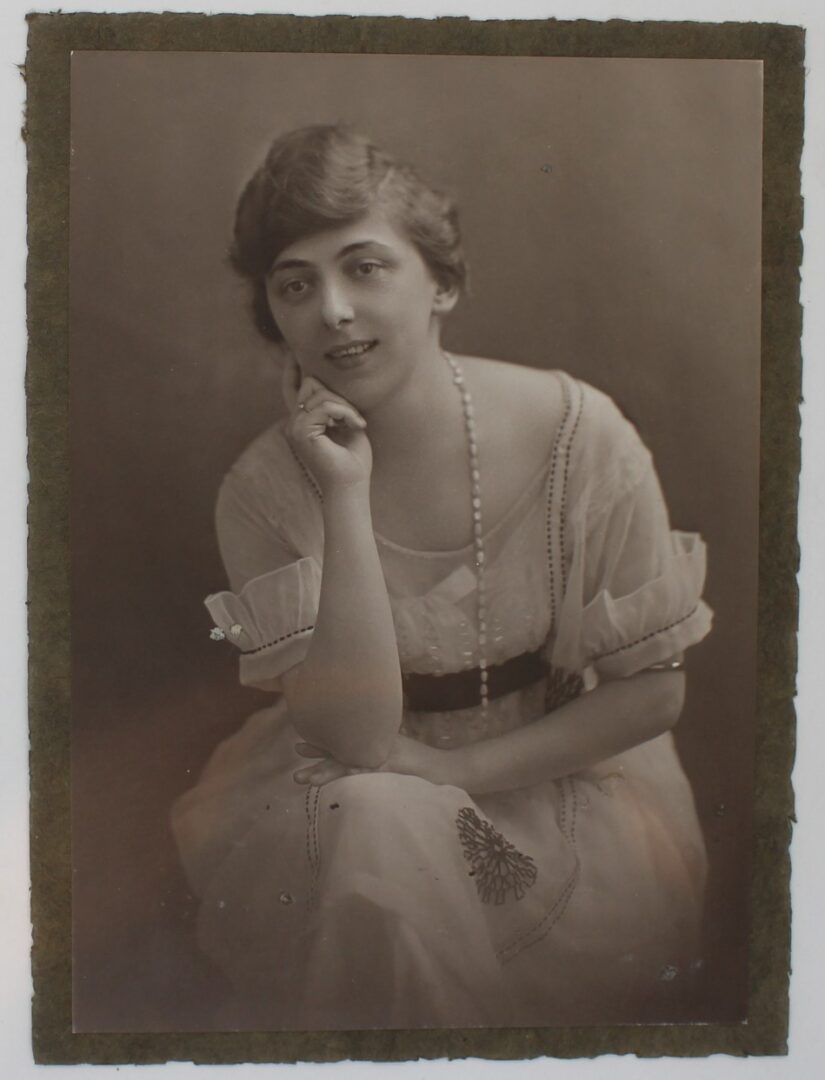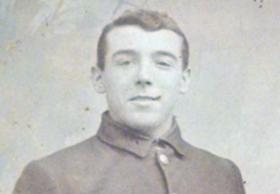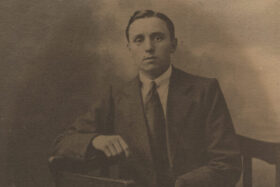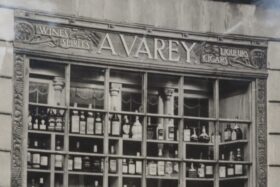Music History: The Story of Mary Sproston
Author: Emma Morris
Congleton Museum holds collections of artefacts, newspapers, books, and more, reflecting the rich music history of Congleton’s community and beyond. Hidden within this treasure is the story of Mary Sproston, a tale that tells not only the interesting life of a talented individual but also the enduring connection between a daughter and father.

Mary Sproston, born in Cheshire in 1894, was the only daughter of Mrs and Mr George Sproston. The latter was a Clerk to the Congleton Borough Magistrates before his retirement sometime before 1935.
Mary was an accomplished pianist throughout her youth, which helped her to achieve numerous accolades in the local music scene. This includes receiving a fifth place award at the Buxton Music Festive’s solo competition for her rendition of Beethovern’s Sonata Op, 2, No 3, C Major in 1911.
During the initial years of her career, Mary studied under Mr. Charles Kelly, a Gold Medalist Associate of the Royal Manchester College of Music. Later, around 1914, she became a student of Miss Andrews, who was an award-winning opera singer and teacher.
Thanks to her father’s unwavering support of her career, Congleton Museum has an in-depth newspaper record of Mary’s transformation into an accomplished opera singer and pianist during the early half of the twentieth century.
Mary’s Early Life
Mary’s singing journey started with her debut at the ‘Faust’ Concert in Congleton in December 1911. Here, Mary sang the song ‘Ease and Good’ with a rare Mezzo-Sproston voice that earned her a well-deserved ‘hearty and spontaneous’ applause from the audience. Some reports claimed that her pronunciation and enunciation were nearly perfect for a girl her age, fostering the belief among the Congleton community that Mary had a ‘rosy future’ ahead.
These expectations became a reality at the Open Practice of the students of the Royal Manchester College of Music held in June 1914, where Mary received a scholarship at a value of £45 per annum for singing the Pergolesi Aria.
During her two-year program, Mary participated in numerous concerts, including performing the songs “Bird of Love Divine”, “The Home Flag” and more two encores at the Bedford Concert for the Troops in 1915.
Thanks to her efforts, Mary received a Performer’s and Teacher’s Diploma of Associate of the Royal Manchester College of Music in 1916, one of only two students to earn a first-class distinction.
Later Classical Music Career
Mary later became a well-known vocalist, pianist, and teacher around Cheshire, the Potteries, and Manchester. One notable performance was at the Congleton Choral Society’s First Post-War Concert in 1920, where she received heartfelt compliments from the press for her performance of “I know that my Redeemer liveth”.
‘Music is nothing if not emotional, and during the singing of this number, one’s thoughts, which are apt to time to be somewhat mortal and sordid, travelled gently back to earlier days when ones breathed a purer air, when God was a vital factor in a man’s life, and his mother a lad’s most heavenly possession – this number must have been an inspiration to many.’
She later married George William Salt in 1923, the son of Isaac Salt, who owned the Draper’s shop in Mill Street, Congleton, which was renamed Salt & Stubbs in April 1893.
However, Mary’s success was cut short when she passed away suddenly at the young age of 41 in April 1935. She left behind her husband, nine-year-old daughter and her father. Her father unfortunately died a few months afterwards and was buried on 21 December of that very same year.
Music and Devotion
So what can we gain from this tale? The early twentieth century is fought with stories of distant fathers unable to form connections with their children for various reasons, from personal to social conventions.
Yet, this story cuts through the noise.
Mary’s father highlighted, dated, cut out, and placed in an empty book each of Mary’s achievements, awards, or career steps, showcasing not only Mary’s remarkable talents but also the enduring love for his daughter—one that is still evident almost a hundred years later.
Do you want to find out about your family history? Congleton Musuem offers bespoke research facilities to help you discover more.



